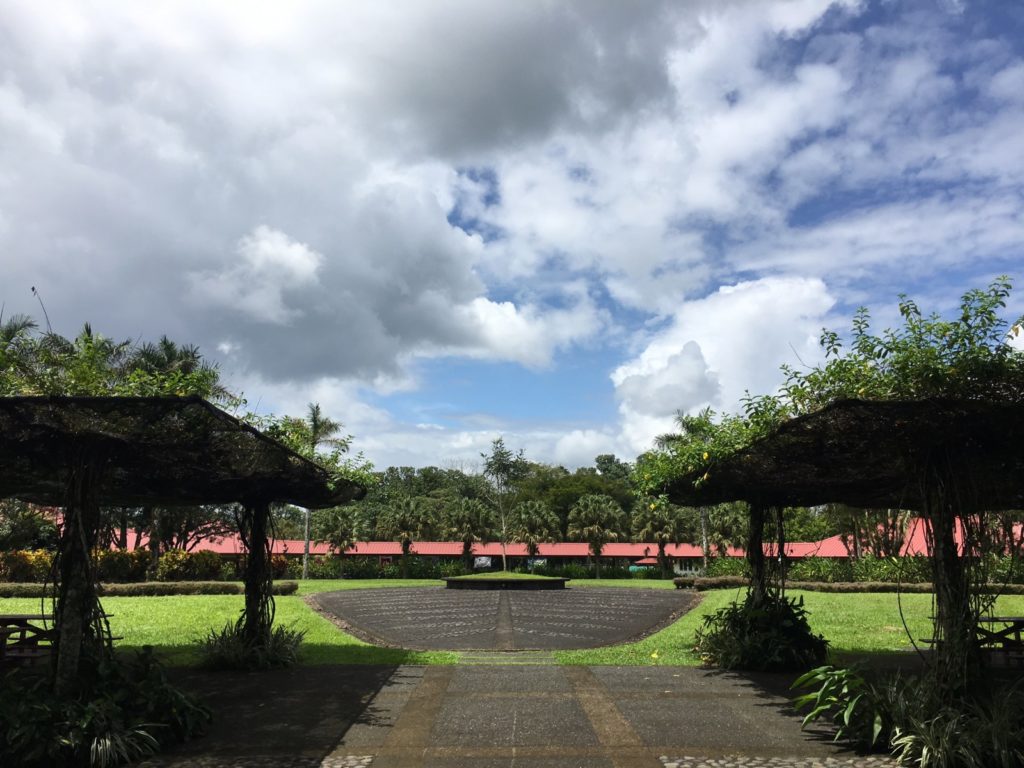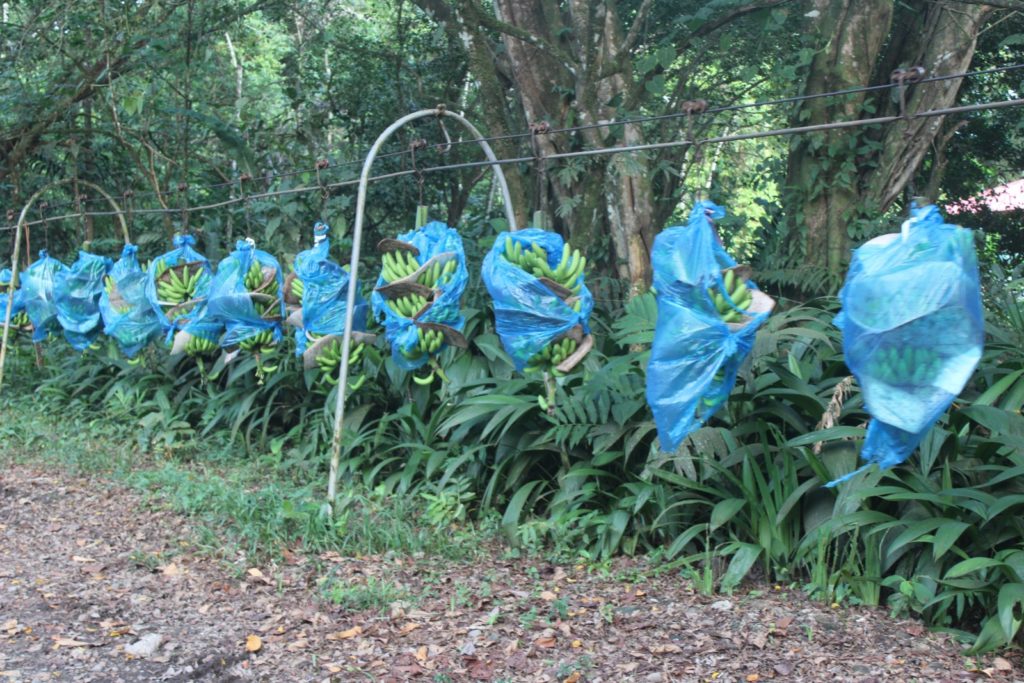 In February, I spent several days on EARTH University’s campus in the Guacimo region of Costa Rica, not far from Limon. I was there to visit family working with the university, and I had heard EARTH was a significant supplier of bananas to Whole Foods Market in the U.S. in a partnership where profits are retained by EARTH to enhance programs for its students. Interested in learning more, I reached out to the team that spearheads these commercial partnerships to set up a meeting and continued researching EARTH’s educational model—which seeks to teach students about environmental resources through their life cycles, from inception to processing to sale. Given this focus, EARTH’s partnership with Whole Foods is thus a commercial opportunity as well as an educational one: Students are taught principles of entrepreneurship in the classroom and gain exposure to it through real-world enterprise.
In February, I spent several days on EARTH University’s campus in the Guacimo region of Costa Rica, not far from Limon. I was there to visit family working with the university, and I had heard EARTH was a significant supplier of bananas to Whole Foods Market in the U.S. in a partnership where profits are retained by EARTH to enhance programs for its students. Interested in learning more, I reached out to the team that spearheads these commercial partnerships to set up a meeting and continued researching EARTH’s educational model—which seeks to teach students about environmental resources through their life cycles, from inception to processing to sale. Given this focus, EARTH’s partnership with Whole Foods is thus a commercial opportunity as well as an educational one: Students are taught principles of entrepreneurship in the classroom and gain exposure to it through real-world enterprise.
I came to Erb to gain a skill set that would equip me to improve the nutritional and environmental outcomes of our food system. I am especially interested in understanding the potential for small-scale farming to be scaled to satisfy demand that is increasingly met by industrial-level farming rather than farmers who practice more traditional means of growing food, and often on land their families have owned for generations.
At EARTH, I wanted to understand to what extent Costa Rica’s foremost university was empowering small farmers through this partnership, which provides “whole-trade,” conventionally grown bananas to Whole Foods, a retail chain known for its sustainability-oriented supply chain and organic offerings. (The whole trade designation is one that Whole Foods created itself to, according to its website, “highlight our commitment to ethical trade, working conditions and the environment, while also meeting our standards for high quality products. Plus, every purchase funds community projects—such as schools and health clinics—determined by the workers themselves.”) EARTH’s supply of whole-trade bananas to the organic retailer is significant and comprises a large percentage of the non-organic bananas that Whole Foods sells.
 I hoped to learn from the leaders of EARTH’s commercial partnerships that their model is self-sustaining, even as they compete with banana giants like Dole and Chiquita, which export bananas in vastly larger quantities. Findings neither confirmed nor denied my hypothesis:
I hoped to learn from the leaders of EARTH’s commercial partnerships that their model is self-sustaining, even as they compete with banana giants like Dole and Chiquita, which export bananas in vastly larger quantities. Findings neither confirmed nor denied my hypothesis:
- EARTH’s whole-trade bananas place them in a unique position to compete with other non-organic suppliers, like Dole and Chiquita. This designation allows them to forgo the often overwhelming requirements to be certified organic, while still reaping the benefits of a sustainability-oriented certification.
- While EARTH has succeeded in differentiating itself within the sustainable banana business, it remains reliant on Whole Foods to negotiate contracts on its behalf with the competitors who own ships that transport the bananas from Costa Rica to North America. Without Whole Foods’ negotiating power, EARTH would be hard-pressed to affordably transport its bananas, given its lack of both infrastructure for transport and market share of local competition.
- One of the most valuable aspects of the EARTH relationship for Whole Foods seems to be the marketing that is possible as a result. Whole Foods’ “Meet Your Farmer” campaign is strengthened by stories like EARTH’s, which inform consumers of action-based educational programs on the ground that their purchases support. In the words of a colleague who works on the commercial partnership, “EARTH makes it easy to know your farmer.”
Ultimately, I had not expected EARTH’s business with Whole Foods to rely so heavily on the retailer’s bargaining power, rather than the supplier’s benefits to the market. I had never considered exactly how bananas make their way from Central America to Whole Foods Markets across the U.S., and it was illuminating to consider that consolidation within the banana industry has made it difficult for smaller producers to compete if they lack the support of a heavy hitter willing to champion their cause. I came away from this experience with a better understanding of why so little of the tropical food available in the U.S. comes from smallholder farms, and with a greater appreciation of the smaller players within these increasingly consolidated industries. Connecting with EARTH and those who manage its commercial partnerships deepened my awareness of the challenges faced by smaller, autonomous competitors within globalized food markets. It also enhanced my admiration for the institution’s commitment to remaining independent, allowing their students and Whole Foods’ customers to reap the benefits of ethically sourced bananas from the Costa Rican jungle.